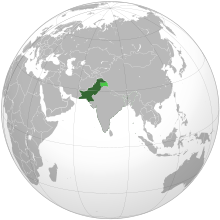LeT’s New Media Strategy – Analysis
By Observer Research Foundation
By Wilson John
Lashkar-e-Tayyeba (LeT), a Pakistan-based terrorist group, is taking its social media outreach programme a notch further by conducting workshops on the use of social media to its cadres and supporters. One of the objectives of the first workshop held early this month was to study the role of social media in ’freedom movements’’or extremist and terrorist activities.

The workshop was organised by Abu Mujahid Nadeem, who for long has been LeT’s spokesperson in Karachi and a confidant of Hafiz Saeed.
The vigour with which the terrorist group is pursuing its social media programme as part of a more insidious and sophisticated media strategy should raise alarms in the counter-terrorism community, particularly in India where the group’s propaganda could be exploited for recruitment and terrorist activities.
The group held its first social media workshop on October 14 in Karachi where it had a terrorist training infrastructure for several years. In fact, the terrorists who attacked Mumbai in November 2008 were trained at some of the training facilities in the port town. A former officer of Pakistan’s Federal Investigating Agency (FIA) told Pakistan Senate Committee in September this year that the terrorist group maintained two training camps in Sindh—one in Thatta and another in Karachi. In their testimony, five witnesses testified before an anti-terrorism court in Rawalpindi in September, also spoke about LeT training camps in Karachi. Karachi has for long been a base of training and operations for LeT. The Mumbai attackers were given maritime training at Karachi.
The group had a visible presence on the web before the Mumbai attack. It ran several websites and discussion forums. After the clampdown following the attack in November 2008, the group maintained a low profile before relaunching its web presence with a vengeance early 2012. A new website was launched listing an entirely different aims and objectives from its earlier versions. It now claims to espouse the cause of the global Muslim community. The website has since been suspended for reasons not known.
The group however re-surfaced on the social media with flourish, opening Facebook and Twitter accounts.
Although the terrorist group has steered cleared of referring to jihad and its own terrorist activities, as it used to do earlier, there are enough indications about its violent intentions. For instance, there is an attempt to project a global, genteel outlook for the group and its leader, Hafiz Saeed, the prime accused in the Mumbai attacks, the promotional video on the website showed a young boy singing a song which referred to the breaking of Somnath temple in India.
Hafiz Saeed launching the social media programme of his terrorist group laid out his broad principles for adopting the social media tools like Facebook and Twitter. He said: “Media is a two-sided sword. Instead of it having an impact on us, we want to use it in an effective way…Inshallah, we want to convey our message of Dawa and kihad to the people through it…”
Since its launch, the group has been able to counter the image of a terrorist group to some extent. Some of the visitors to the pages expressed positive remarks about the group’s stand on Drone attacks and the attack on Malala, the young Swat girl who was shot at by the Taliban early this month. The group has effectively has used the social media tools to initiate and monitor street protests in different cities over the anti-Prophet film, posting real time updates and photographs of the events. Though the number of participants was not as high as claimed but the group was successful in creating the impression of spearheading the campaign to protest against the film. Hafiz Saeed added to the effort by filing a writ petition in the Lahore High Court seeking directions on the Drone attacks as well as on blasphemous projections of Islam and Prophet.
The workshop should therefore be viewed in the overall media strategy of the terrorist group. The workshop was organised by the group’s media unit in Karachi headed by Abu Mujahid Nadeem. It was held at Jamiyaa Darast or Abu Bakr Islamic University complex in Karachi. The campus is associated with several terrorists, including some of the key leaders of Jemaah Islamiyah (JI), an al Qaida affiliate from Indonesia. One of them, Abdul Rahim Ba’asyir, sanctioned by the US Treasury Department in 2011, was also a conduit between JI and LeT. JI operatives were trained at LeT-run training centres in Karachi. A US intelligence report said the university had funding support from LeT. A leaked US report on Guantanamo prisoners titled “Matrix of Threat Indicators for Enemy Combatants” listed the university as a centre used for indoctrination and terrorist training.
Abu Jindal, one of the LeT operatives accused of helping the group carry out the Mumbai attack, has told the Indian investigators about a full-fledged media cell run by the group. The group used to run a computer lab in Muzaffarabad under some of its young operatives for training the cadres in the use of hi-tech communication and information tools. The group today runs several computer classes and workshops as part of its educational and social outreach programmes in Punjab and Sindh.
The agenda of the workshop included: how to leverage social media, introduction to top social media networks, the role of social media in freedom movements and the use of Twitter, Facebook and YouTube tools.
Among the speakers who participated in the workshop were Irfan Shehzad of Sarzameen Productions who spoke about the importance of documentaries, Mohsin Siddique on social media awareness and use and Abdullah Saad, a young blogger, activist and researcher on cyber warfare, perception management, 4G war and social activism.
(Wilson John is a Senior Fellow with Observer Research Foundation, Delhi)
